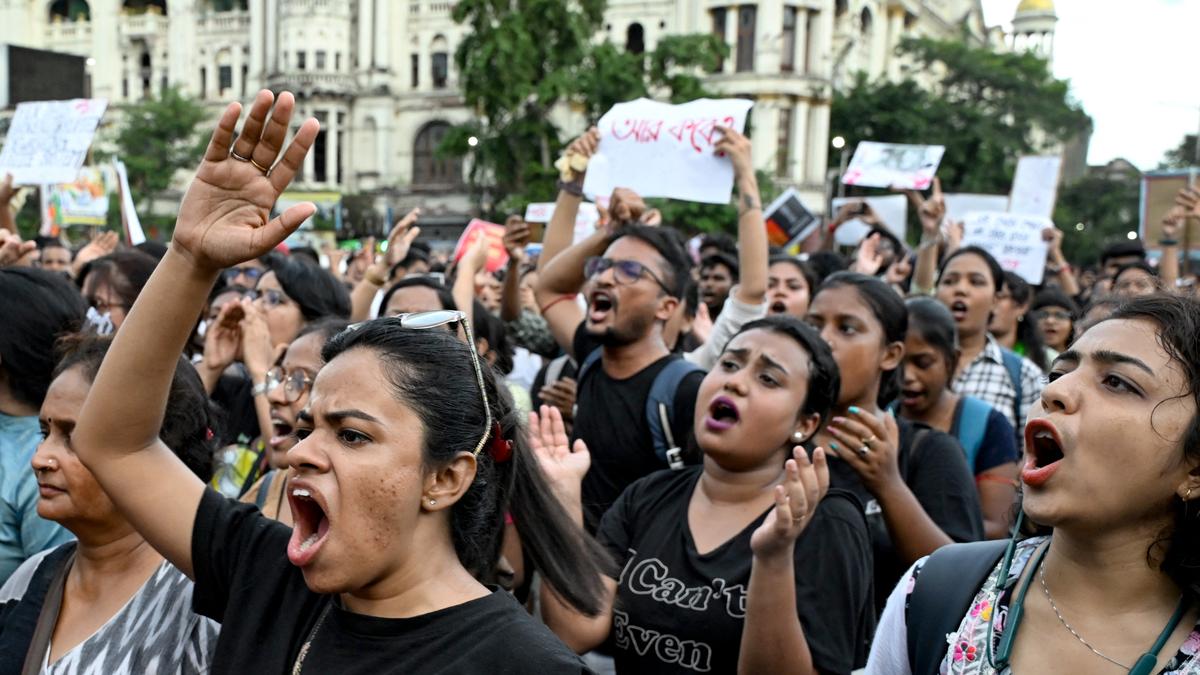
‘Reclaim the Night’ protest reminds us gender justice is still far cry
The Hindu
"Reclaim the Night" protests against patriarchal surveillance and unsafe nights for women, demanding justice and systemic changes.
Nights have been made cautionary for women, as the clock ticks into the night, women were made to feel unsafe in their own city, own neighbourhood, in their own workplace. Society wants women to be back within patriarchal surveillance by night falls. After the rape and murder of a trainee doctor in Kolkata’s R.G. Kar hospital on August 9, 2024, these same patriarchal values enabled the RG Kar hospital ex-principal Sandip Ghosh to comment that it was irresponsible of the girl to be alone in the night. The comment worked as a catalyst to move thousands of women to the streets to demand answer why nights have been made unsafe systematically for them.
Why “Reclaiming the Night”?
Despite the huge backlash following the rape case, West Bengal Government chose to restrict the working hours of women in night, a move which infuriated women across social classes and backgrounds. The directive was criticised by the Supreme Court. The National Crime Records Bureau’s (NCRB) annual report of 2022, the latest one available, shows that 4.45 lakh cases of crimes against women were registered, which is equivalent to nearly 51 FIRs every hour.
The protest call of “Reclaim the Night, Reclaim the Rights” was first given by a group of gender activists in Kolkata in three places on the intervening nights of 15th of August. Soon in various other districts such as Howrah, Hooghly, Jhargram, women from various walks of lives and age groups made this call their own and what followed August till October was one of the biggest mobilisation and persistent protests against gender violence that Bengal ever saw.
A school teacher, from West Bengal’s Hooghly district, who was part of the protest, said that when she first got the news of the rape and murder of the R.G. Kar doctor, she thought would be treated as yet another rape incident and people would move on. She said she thought protests would happen in Kolkata, but when calls were given locally, she decided to participate. “On that night when we were out we found that night to be different than others,” she said.
She claimed the protest created a deep impact on the society and even if the government tries to suppress the people somehow there will be an eruption soon again.
Mamoni Panja, a university student from Kolkata’s Ultadanga, pointed out how the “Reclaim the Night” protest was able to raise some fundamental questions about workplace safety and women’s rights. She said if a man is free enough to spend a night outside why a woman can not? She said, “Sandip Ghosh’s comment on the doctor being alone in the seminar room at night after duty hurt the dignity of all of us.













